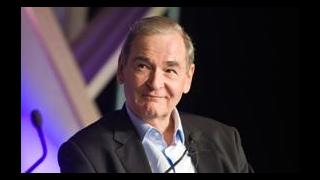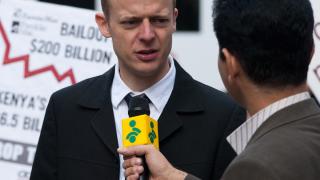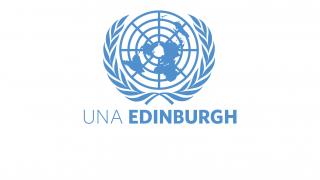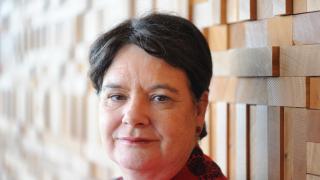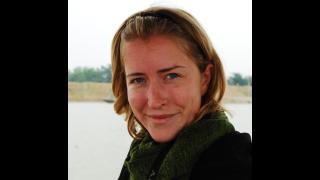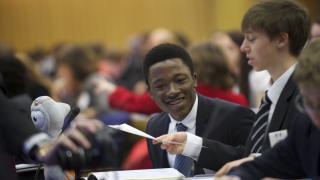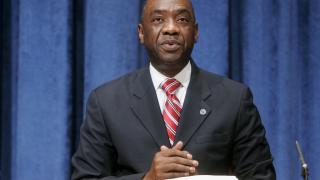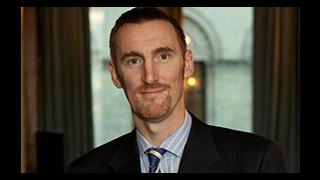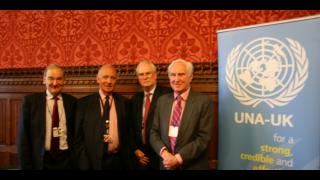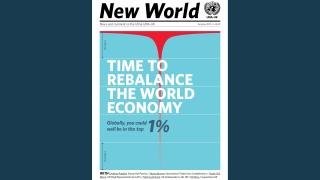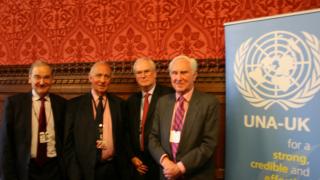
Sir Mark Lyall Grant – the UN’s response to the Arab Spring On 2 May, the All-Party Parliamentary Group (APPG) on the UN held an event with Sir Mark Lyall Grant, UK Ambassador to the UN, who spoke on the UN’s response to the Arab Spring. Lord Hannay of Chiswick, Chair of the UN APPG and a former UK Ambassador to the UN, chaired the event, while Sir Jeremy Greenstock, UNA-UK Chairman and another of Sir Mark’s predecessors, acted as a respondent. With collective Security Council experience spanning more than 20 years, the three diplomats took the opportunity to reflect on its evolving role. More than 120 UNA-UK members, NGO representatives, parliamentarians and diplomats participated in a wide-ranging discussion that covered issues including international justice, energy security and UN reform. An extract of Sir Mark’s speech is printed below.
Traditionally, the UN Security Council spends two-thirds of its time on sub- Saharan Africa. But in the last year, the most difficult debates have been on Libya, Yemen, Sudan and Syria – not forgetting Israel/Palestine.
I don’t need to explain the significance of the Arab Spring to this audience, but two points are worth making. Firstly, although similar impulses have instigated the uprisings – a desire for political participation and a demand for economic opportunity – the countries and societies across the region vary enormously in their wealth, traditions and institutions. They are therefore bound to move at different speeds and in different ways.
Countries such as Libya are holding elections for the first time ever. Reforms in Morocco and Jordan will take time. Change seems barely discernible in some of the Gulf States and Saudi Arabia. And in Syria, Bashar al-Assad will make every effort to hang on to power.
This means that we will need strategic patience – my second point. The Arab Spring was never going to be a quick fix. These are not our revolutions; we are supporting those struggling for their own freedoms and reforms. We should avoid the temptation to pick champions, and recognise that there will be many setbacks. As experience in Europe, Latin America and Africa has shown, democratisation is rarely linear.
There is understandable concern about the rise of political Islam in the region. The Muslim Brotherhood secured the majority of seats in Egypt’s constituent parliament and the Salafists won 20%. In Tunisia and Morocco, Islamic parties have come out on top and they are likely to do well in Libya and Yemen too.
But the inspiration behind the region’s upheavals has come from young people seeking a greater say in the way that they are governed and more economic opportunities. It is as much a clash of generations as of civilisations. Successful political parties know that if they are to meet these expectations they will need to free up the economy and attract investment from the West. And let’s not forget that it was autocratic leaders like Gaddafi who fostered threats to international security.
Overall, I would argue that the UN’s response to these events has been impressive. The UN Secretary-General, prepared to ignore criticism from major UN member states, has made a series of bold statements on Egypt, Libya, Syria, Yemen and Bahrain, and powerful speeches on humanitarian intervention and the responsibility to protect. The Human Rights Council suspended Libya, established a commission of inquiry and effectively rejected Syria’s candidature for membership. The General Assembly switched accreditation to the Libyan opposition and adopted, by an overwhelming majority, a human rights resolution on Syria. The Security Council referred Libya to the International Criminal Court and adopted wideranging sanctions on the regime before authorising a no-fly zone and all necessary means to protect civilians. Together, these constituted the most wide-ranging resolutions passed by the Council for more than 20 years.
There has, of course, been a backlash. Russia and China, along with some others, have argued that the military action in Libya went beyond what had been mandated by the Council’s resolution, with the objective of regime change rather than civilian protection in mind. These criticisms are unjustified. During the final Council negotiations, it was made very clear what measures would be necessary to implement the resolution. However, the sentiment has made subsequent debates in the Council more difficult; Russia and China have twice vetoed resolutions on Syria, for example.
But the Council has not been paralysed by this backlash. It has mandated new UN missions in Libya and South Sudan, and in Yemen, a Council-supported envoy helped to broker the peace deal. Most encouragingly, the Council finally adopted two unanimous resolutions on Syria in April, offering full support for UN-Arab League envoy Kofi Annan’s six-point peace plan and authorising a monitoring mission.
Certainly, the next few years will be difficult – the ongoing violence in Syria is deeply worrying – but democracy is messy and entails risks. Let’s keep our eyes on the strategic trend, which is the opening of political space and a new culture of accountability. This is positive – and I expect it to remain so.
Sir Mark’s full speech is available here.


